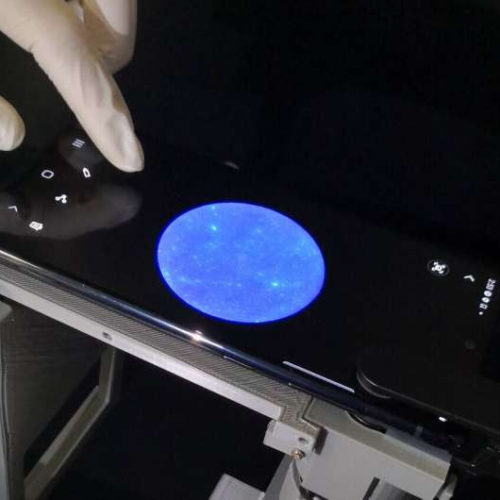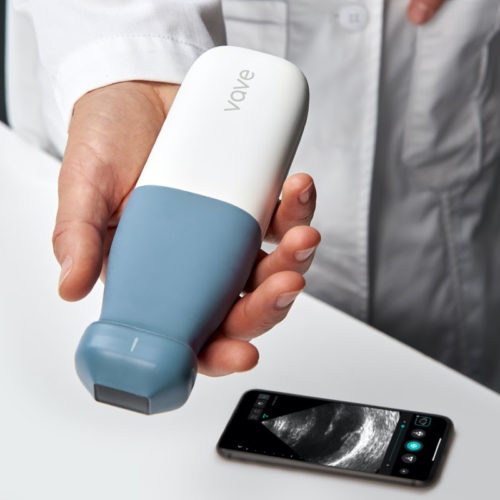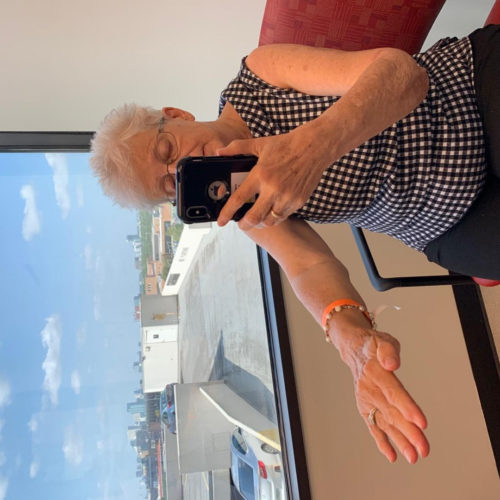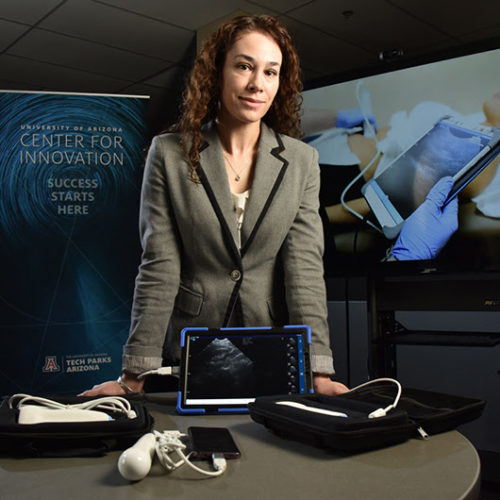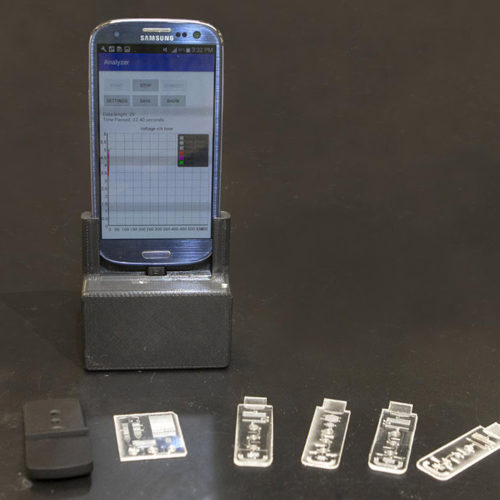UNIVERSITY OF PENNSYLVANIA SCHOOL OF MEDICINE PHILADELPHIA– Alcohol-impaired driving kills 29 people a day and costs $121 billion a year in the U.S. After years of progress in reducing alcohol-impaired driving fatalities, efforts began to stall in 2009, and fatalities started increasing again in 2015. With several studies demonstrating that drinkers cannot accurately estimate their...
Tag: <span>Smartphone</span>
Researchers develop smartphone-based COVID-19 test that delivers results in about 10 minutes
by University of Arizona UArizona researchers image a sample using a smartphone microscope. Credit: UArizona Biosensors Lab Researchers at the University of Arizona are developing a COVID-19 testing method that uses a smartphone microscope to analyze saliva samples and deliver results in about 10 minutes. The UArizona research team, led by biomedical engineering professor Jeong-Yeol Yoon, aims to combine the speed...
Portable ultrasound probe links with a smartphone
By Ben Coxworth December 15, 2020 Vave wirelessly communicates with an iOS or Android mobile device, which is running an accompanying appVave HealthVIEW 2 IMAGES Ordinarily, medical ultrasound imaging systems are big and bulky enough that they have to be pushed along on wheeled carts. The new Vave probe, however, can be carried in a...
New tool can diagnose strokes with a smartphone
PENN STATE IMAGE: KATHRYN ATKINSON, A PATIENT AT HOUSTON METHODIST HOSPITAL, PARTICIPATES IN A SMARTPHONE SCREENING TEST TO ANALYZE STROKE-LIKE SYMPTOMS SHE’S EXPERIENCING. THE TEST IS POWERED BY A MACHINE LEARNING ALGORITHM DEVELOPED. UNIVERSITY PARK, Pa. — A new tool created by researchers at Penn State and Houston Methodist Hospital could diagnose a stroke based on abnormalities...
VistaScan Ultrasound Probes for Your Smartphone Cleared by FDA
MEDGADGET EDITORSANESTHESIOLOGY, EMERGENCY MEDICINE, MILITARY MEDICINE, OB/GYN, RADIOLOGY, URO Emagine Solutions Technology, a startup based in Tucson, Arizona, won FDA clearance for its VistaScan mobile ultrasound system. The product includes ultrasound probes that can interface with a clinician’s own smartphone or tablet, and the company’s app is used to display and manipulate live images produced...
Credit Card Sized Diagnostic Lab Plugs into Smartphone
Researchers at the University of Cincinnati have developed a tiny portable diagnostic device that can detect the presence of specific pathogens in a saliva sample, and relay the results to a doctor when plugged into a smartphone. The device can potentially diagnose a wide array of diseases, including malaria, HIV and Lyme disease, and could...
4 ways to check for skin cancer with your smartphone
Your phone can help you recognize suspicious moles and marks, but you should still see a dermatologist about concerns. Early detection of skin cancer could be the difference between a simple mole removal or several rounds of chemotherapy. SkinVision While skin care advice most commonly comes about at the brink of summer, your skin can...
Problematic smartphone use linked to poorer grades, alcohol misuse and more sexual partners
by University of Cambridge A survey of more than 3,400 university students in the U.S. has found that one in five respondents reported problematic smartphone use. Female students were more likely be affected and problematic smartphone use was associated with lower grade averages, mental health problems and higher numbers of sexual partners. Smartphones offer the potential of instant, round-the-clock access for making phone calls, playing games, gambling, chatting...
Smartphone app allows tuberculosis patients to visit doctor’s office less frequently
Tuberculosis is a terrible lung disease, which kills thousands of people every year. We do have effective treatments, however, which prevent death and allow getting rid of the infection. But the treatment only works if you are receiving it. A new UCL-led study has found that patients with tuberculosis are more likely to continue their drug treatment if they are...
No bleeding required: Anemia detection via smartphone
Biomedical engineers have developed a smartphone app for the non-invasive detection of anemia. Instead of a blood test, the app uses photos of someone’s fingernails taken on a smartphone to accurately measure how much hemoglobin is in their blood. The results are scheduled for publication in Nature Communications. Fingernail beds are ideal for detection of anemia because they don’t contain melanin. Credit: From Mannino et al Nature Communications 2018...

